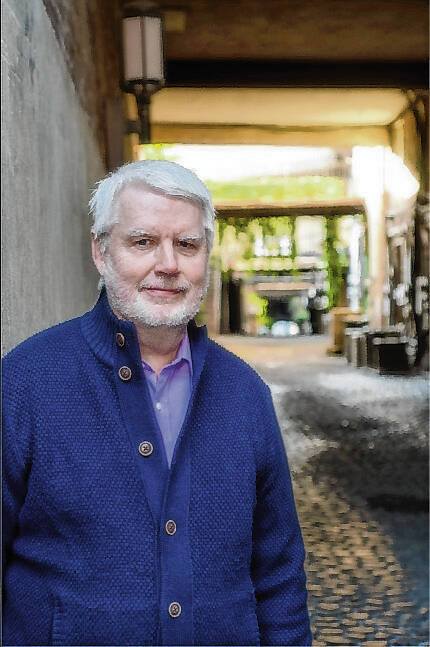“No man is an island” is a familiar quotation of the poet John Donne. But there was more to Donne’s thought than just that phrase. The reading continues in this way: “No man is an island entire of himself; every man is a piece of the continent, a part of the main.” Perhaps the shortest summary of Donne’s point is that we are all connected and all part of one family — the human family.
In the sometimes crazy way my brain works, I hear John Donne’s words as the perfect response to two questions that were posed millennia ago. One is the question of Cain in the book of Genesis, when God asks Cain where Abel, his brother, is, and Cain answers, “Am I my brother’s keeper?” Donne’s meditation answers, “Yes, Cain, you are responsible for your brother. You are not an island cut off from him or anyone.”
The other ancient question is found in the New Testament Gospels. A rich young ruler asks Jesus, “And who is my neighbor?” Donne’s meditation offers in its own way what Jesus offers in reply. “Your neighbor is anyone in need. We are not islands cut off from one another. We are all a piece of the same continent.”
The holidays of Christmas, Hanukkah and Kwanzaa are days when we are encouraged to embrace Donne’s wisdom. Our mail is filled with appeals to help those around the world who are in need, and, closer to home, there are drives to serve those of our own communities who are in need.
But there is a real island not that far from our shores whose people’s cries for help are easy to ignore. Now in my 70s, I can’t think of a time in my life when Haiti, sharing an island with the Dominican Republic, wasn’t in crisis. When people my age were in grade school, Haiti was ruled by Papa Doc Duvalier, a tyrant who belongs in the same category as Nero and Hitler. He was famous for ruling Haiti through death squads that terrorized the people. He was followed by his son, Baby Doc, who was little better than his father.
Throughout my whole life, Haiti has remained one of the poorest, if not the poorest country in the world. There have been moments of hope, when it looked like Haiti might achieve some stability with a democratically-elected government, but at this present moment, Haiti might be at its all-time low point.
In July 2021, Haiti’s president, Jovenel Moise, was assassinated, and ever since that moment, Haiti has descended further and further into anarchy. With no government in control, Haiti is now at the mercy of rival gangs. Nothing works — not food distribution, health care, police services, education or sanitation. The leaders who remain are begging for outside intervention.
It seems that the nations of our hemisphere know what is needed to rescue Haiti. It will take a massive multinational peacekeeping force and billions in humanitarian aid for Haiti to recover. But knowing what is needed and actually doing what is needed are two different things. Put simply, in the eyes of many of the leaders of nations in North, Central and South America, Haiti looks too broken to save.
John Donne’s answer to Haiti? “Haiti isn’t an island entire of itself; Haiti, Brazil, the United States and Canada are pieces of one continent, pieces of the whole.”
Perhaps, in this season of sharing and caring, we can take a few minutes to show our concern for Haiti by contacting our government representatives and asking our own question: “How can we help our brothers and sisters in Haiti?”





